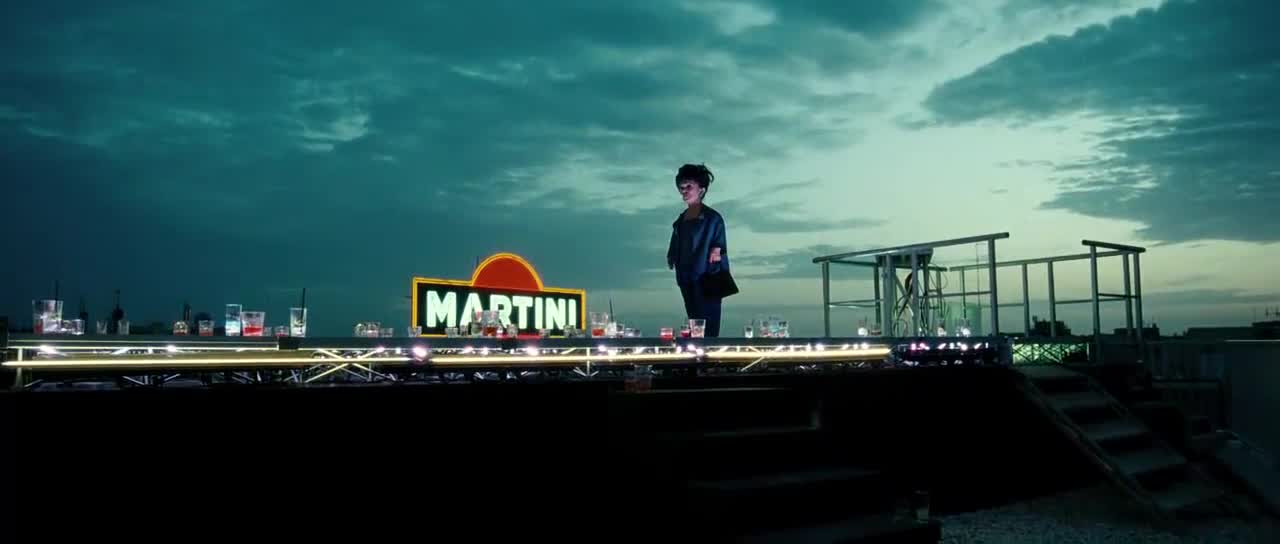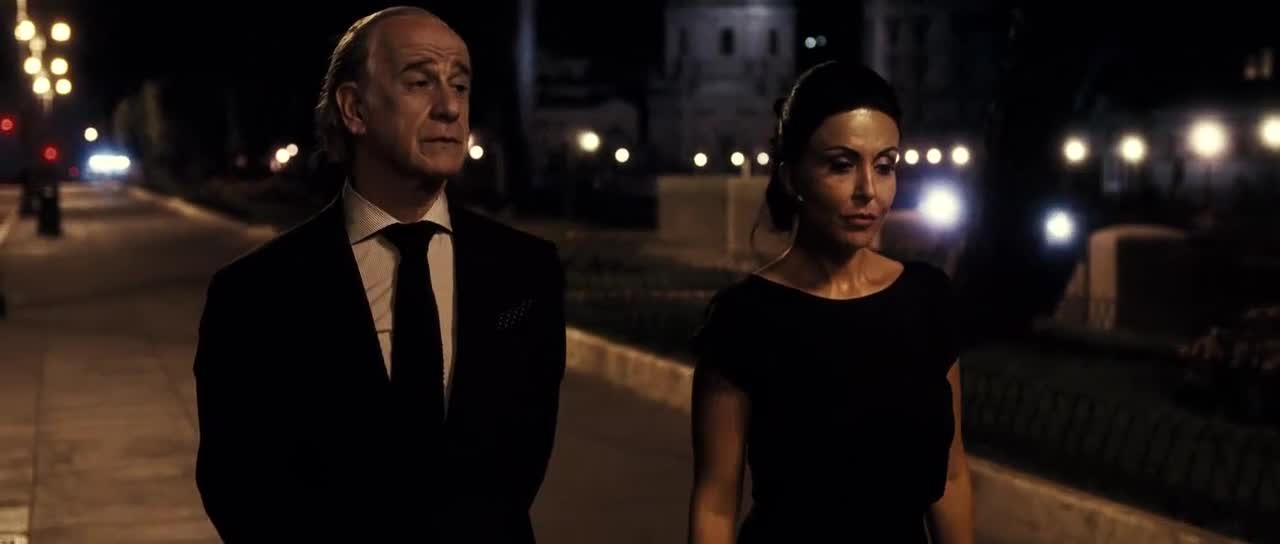 Tim here. The recent release of Paolo Sorrentino’s The Great Beauty on a DVD/Blu-Ray combo from the Criterion Collection means that most of us in North American finally have our first decent chance to see the most recent winner of the Best Foreign Language Film Oscar. And by “decent chance”, I mean two things: one is that if you live outside of any of the usual big urban centers that get little foreign releases, The Great Beauty hasn’t been remotely near your home before now. The other is that even if you live in one of those places, The Great Beauty isn’t likely to have played in any of the best & shiniest multiplexes, but in the dogged little art theaters that don’t have the money to do much besides show movies in a more or less tolerable environment. Where I live in Chicago, for example, the film played in the biggest art house that’s long on well-preserved atmosphere from the golden age of movie theaters, and which boasts just about the crappiest projection and tinniest speakers of any commercial venue.
Tim here. The recent release of Paolo Sorrentino’s The Great Beauty on a DVD/Blu-Ray combo from the Criterion Collection means that most of us in North American finally have our first decent chance to see the most recent winner of the Best Foreign Language Film Oscar. And by “decent chance”, I mean two things: one is that if you live outside of any of the usual big urban centers that get little foreign releases, The Great Beauty hasn’t been remotely near your home before now. The other is that even if you live in one of those places, The Great Beauty isn’t likely to have played in any of the best & shiniest multiplexes, but in the dogged little art theaters that don’t have the money to do much besides show movies in a more or less tolerable environment. Where I live in Chicago, for example, the film played in the biggest art house that’s long on well-preserved atmosphere from the golden age of movie theaters, and which boasts just about the crappiest projection and tinniest speakers of any commercial venue.
That’s no way at all to see a movie as heavily invested in surface-level appeal as The Great Beauty, so that’s one cause for celebration all by itself. Now we have a chance to see Luca Bigazzi’s cinematography in crisp, retina-searing high definition, allowing all the rich, lurid colors of the production design and costume to glow right off the screen.

This is very important, because The Great Beauty is a film very much about sensory experience: the ways in which the rich, idle, and corrupt of modern Italy fill all of their time with as much short-term distraction as they possibly can. And the quest of one man, Toni Servillo’s Jep Gambardella, who decides after a lifetime of partaking in those distractions, that he wants to find true beauty and meaning in the world. For the film to work, two things must happen, in order: the overwrought, non-stop energy of the superficial Roman party life has to be presented with enough style and impact that it’s exhilarating until it finally gets shrill and tiresome, and then the slowed-down tour of Rome must depict that city with all the grandeur and beauty that the filmmakers can muster. There might be other ways of making that happen, but Sorrentino and his collaborators choose to do it almost exclusively through visual means.

The Criterion Blu-Ray looks exquisite, so there’s that issue taken care of. It’s hard to imagine the film looking any sharper or more colorful under even the best of theatrical conditions, and that makes the film’s sensual seduction and assault work about as well as I can imagine them doing. It sounds terrific as well, with the noisy party scenes and hushed moments of reflection both coming across crisply and clearly, the contrast between the two registers making almost as much impact as the high-energy visuals do.
And for this, we should of course be grateful to Criterion for doing their usual archival-quality work with the film. Where the set falls down a little bit is in the features: three perfectly serviceable interviews, one with Servillo, one with screenwriter Umberto Contarello, and one that’s longer than the other two combined with Sorrentino himself. Only the last of these adds real context and insight to the movie (which, being saturated in Italian politics like the rest of the director’s work, needs plenty of context to reveal the most of its meaning), while the others are enjoyable but ultimately routine “here’s how we made that” chatter. There’s also the U.S. trailer, and a couple of deleted scenes, the latter of which are certainly worth at least one viewing, though it’s no crime that they were kept out of what’s already not a short film.
At any rate, the thing that matters is the film itself; and it’s hard to imagine The Great Beauty being any better under any circumstances. Having not seen all five of the nominees for Foreign Film, I can’t say that whether or not it’s the best, but it’s a perfectly worthy winner in its own right, and this release is an ideal way to catch up with it, for those of you who, like me, feel compelled to see every last winner of every last Oscar that you can get your hands on.
